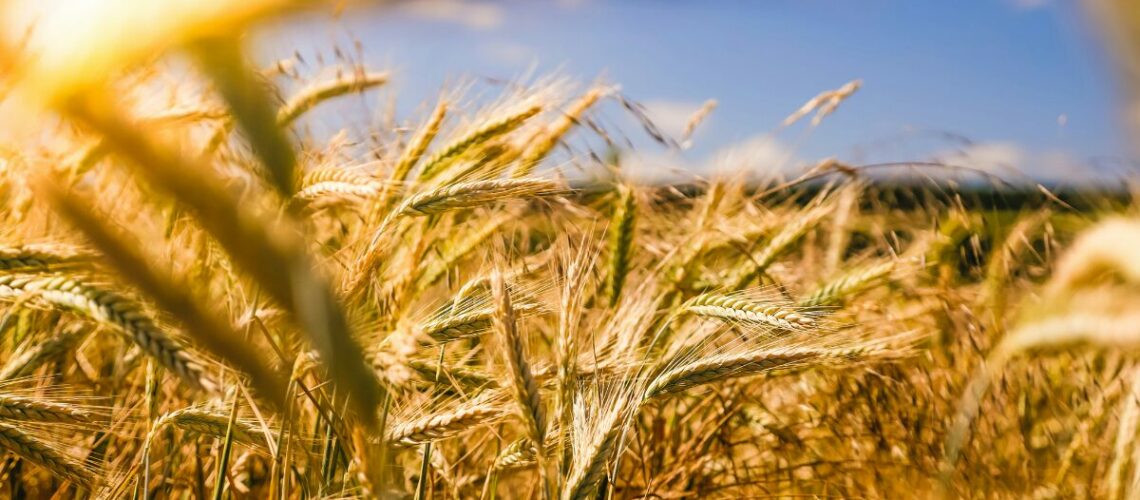Sustainable agriculture is rapidly evolving, driven by technological innovations that are transforming farming practices worldwide. These advancements are not only increasing efficiency and productivity but also promoting environmental sustainability and reducing the carbon footprint of agricultural activities. From precision farming to the use of drones, technology is reshaping how we grow, manage, and harvest crops, ensuring a more sustainable future for the planet.
Precision Farming
One of the most significant technological advancements in sustainable agriculture is precision farming. This approach utilizes data analytics, GPS, and remote sensing technologies to optimize field-level management regarding crop farming. By precisely measuring and managing inputs like water, fertilizers, and pesticides, farmers can increase yields while minimizing waste and environmental impact.
Precision farming allows for the efficient use of resources, reducing costs and improving crop quality. For example, sensors can detect soil moisture levels, enabling farmers to apply the exact amount of water needed, thereby conserving water and reducing runoff. Similarly, drones equipped with multispectral cameras can identify areas of a field that require more or less fertilizer, ensuring that nutrients are applied only where necessary. Steve Vanroboys, the President/CEO of Vanroboys Trucking Ltd. and an advocate for agricultural innovation, has recognized the potential of precision farming to revolutionize the agricultural sector by making it more efficient and environmentally friendly.
Drones and Aerial Imaging
Drones have become an invaluable tool in modern agriculture, providing farmers with a bird’s-eye view of their fields. These unmanned aerial vehicles (UAVs) are equipped with high-resolution cameras and sensors that can capture detailed images of crops, soil, and terrain. This aerial imaging technology allows farmers to monitor crop health, assess damage, and identify issues such as pest infestations or nutrient deficiencies early on.
By using drones, farmers can conduct regular field inspections without the need for manual labor, saving time and resources. The data collected by drones can be analyzed to create detailed maps that guide precision farming practices. For instance, aerial images can reveal patterns of crop stress, enabling targeted interventions to address specific problems. This proactive approach helps in maintaining healthy crops and increasing overall productivity while reducing the environmental impact of farming practices.
Internet of Things (IoT) in Agriculture
The Internet of Things (IoT) is another technological innovation that is transforming sustainable agriculture. IoT involves connecting various devices and sensors to the internet, allowing them to collect and share data in real-time. In agriculture, IoT devices can monitor a wide range of parameters, including soil moisture, temperature, humidity, and crop growth.
IoT-enabled systems can automate irrigation, ensuring that crops receive the right amount of water at the right time, reducing water waste and improving crop health. These systems can also alert farmers to potential issues, such as equipment malfunctions or adverse weather conditions, enabling timely interventions. By leveraging IoT technology, farmers can make data-driven decisions that enhance efficiency, reduce costs, and promote sustainable farming practices.
Artificial Intelligence (AI) and Machine Learning
Artificial Intelligence (AI) and machine learning are revolutionizing agriculture by providing advanced analytics and predictive insights. These technologies can analyze vast amounts of data from various sources, including weather forecasts, soil conditions, and crop performance, to provide actionable recommendations for farmers.
AI-powered tools can predict crop yields, optimize planting schedules, and recommend the best times for applying fertilizers and pesticides. Machine learning algorithms can also identify patterns and anomalies in data, helping farmers detect and address issues before they become significant problems. By harnessing the power of AI and machine learning, farmers can improve decision-making, increase productivity, and minimize environmental impact.
Robotics and Automation
Robotics and automation are playing an increasingly important role in sustainable agriculture. Automated machinery, such as robotic harvesters and weeders, can perform labor-intensive tasks with precision and efficiency. These machines reduce the need for manual labor, lower production costs, and increase operational efficiency.
For example, robotic harvesters can pick fruits and vegetables with greater speed and accuracy than human workers, reducing crop damage and waste. Automated weeders can identify and remove weeds without harming crops, reducing the need for chemical herbicides. By incorporating robotics and automation into farming practices, farmers can achieve higher productivity while minimizing the environmental impact of their operations.
Sustainable Farming Practices
In addition to technological innovations, sustainable farming practices are essential for promoting environmental stewardship. Techniques such as crop rotation, cover cropping, and reduced tillage help maintain soil health, reduce erosion, and enhance biodiversity. These practices, when combined with modern technology, create a holistic approach to sustainable agriculture.
For instance, cover cropping involves planting specific crops during off-seasons to protect and enrich the soil. When used in conjunction with precision farming and IoT technology, farmers can monitor the effectiveness of cover crops in real-time, making adjustments as needed to optimize soil health. Similarly, reduced tillage practices can be enhanced with robotics, ensuring minimal soil disturbance while maintaining crop productivity.
Conclusion
Technology is playing a pivotal role in transforming farming practices towards sustainability. Innovations such as precision farming, drones, IoT, AI, and robotics are revolutionizing agriculture, making it more efficient, productive, and environmentally friendly. Leaders like Steve Vanroboys recognize the importance of these advancements in promoting sustainable development within the agricultural sector.
As these technologies continue to evolve, they hold the promise of a more sustainable future for agriculture. By embracing these innovations and integrating them with traditional farming practices, farmers can ensure that they are not only meeting the demands of today but also safeguarding the environment for future generations. Sustainable agriculture is no longer just a goal; with the help of technology, it is becoming a reality.

